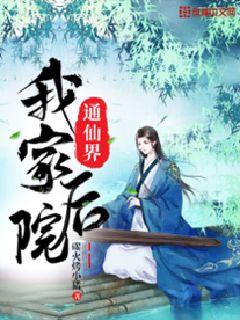
文章摘要:鸡排盛宴,美味无限。本文将从四个方面深入探讨鸡排盛宴的独特魅力:传统美食的创新融合、多样烹饪方式的盘点、地区特色的味觉冲击以及未来发展的前景展望。通过对这些方面的分析,将带领读者领略鸡排的美味世界,并揭示其在美食领域中的无限可能。
1、传统美食的创新融合
鸡排作为传统美食,一直以其香酥美味而受到喜爱。然而,随着时代的变迁,人们对美食的需求也在不断变化。在这种背景下,诸如鸡排卷、鸡排汉堡等新型创新鸡排逐渐走进人们的视野。这些创新融合的美食将传统与现代完美结合,让人耳目一新。
随着餐饮业的竞争日益激烈,传统美食也需要不断创新来迎合消费者的口味。通过对传统鸡排的重新解构和搭配,厨师们不断研发出独具特色的新款鸡排美食,为传统带来全新活力。
创新融合的鸡排不仅在口感上有所突破,更在外观和搭配上有所创新。传统的鸡排烹饪方式多以油炸为主,而现代创新鸡排则有烤、煎、焗等更多选择,为消费者带来更多口味体验。
2、多样烹饪方式的盘点
除了传统的油炸鸡排外,现代厨师们还摒弃传统束缚,大胆尝试各种烹饪方式。烤制的鸡排香气诱人,煎炒的鸡排口感鲜嫩,焗烤的鸡排更是香气四溢。多样的烹饪方式让人们对鸡排有了更多的选择。
不同的烹饪方式带来的不仅是口感上的变化,更是对食材本身的发挥。通过烤制,鸡排的原汁原味更能得以保存;通过煎炒,调味更容易被食材吸附;通过焗烤,不同食材的香气相互交融。这些烹饪方式的盘点,使鸡排从单一的油炸走向多元发展。
随着烹饪技术的不断进步,鸡排的烹饪方式也愈发多样化。传统的鸡排烹饪方式已经不能满足人们的需求,多样烹饪方式的盘点为鸡排的美味提供了更广阔的空间。
3、地区���色的味觉冲击
不同地区的鸡排烹饪方式各有特色,味觉上也呈现出明显差异。比如南方鸡排多偏于甜辣口味,北方鸡排则喜欢鲜香味。不同地域对调味料的选用及烹饪方法的不同,使得同一道鸡排在不同地域吃起来截然不同。
地区特色的鸡排也体现在食材的选用上。比如江浙一带的鸡排喜欢选用当地产的水泡鸡肉,而川渝地区的鸡排则强调选材讲究。地域特色带来了不同的味觉冲击,让���在品尝鸡排的过程中感受到大千世界的多样性。
地区鸡排的区别也反映了当地人们的生活方式和口味特点。通过品尝不同地域的鸡排,可以了解到不同地区的文化底蕴和饮食习惯,让人在享受美食的同时也增长见识。
4、未来发展的前景展望
随着社会经济的不断发展,鸡排盛宴的美味将会有更广阔的发展空间。人们对美食的需求日益追求多元化和个性化,传统的鸡排已经不能满足大众口味。未来的鸡排将更加注重与时俱进,不断创新出更多新颖美味。
未来鸡排的发展方向可能会围绕健康、美味、方便等多个方面展开。比如可以开发出低油低脂、种类多样化的健康鸡排产品;可以结合快时尚餐饮概念,推出方便携带的鸡排快餐产品等。未来鸡排的前景十分广阔,将走向更多人的餐桌。
综上所述,鸡排盛宴不仅是一种美食,更是一种文化和创新的体现。通过不断的探索和发展,鸡排将在未来展现出更加灿烂的光芒,成为美食界的一颗璀璨明珠。
总结:鸡排作为美食中的一种经典菜品,通过创新融合、多样烹饪方式、地区特色与未来发展的探讨,展现了其无限魅力与发展前景。传统美食在时代变迁中不断焕发新生,鸡排的美味将持续影响着人们的味蕾,开启美食新篇章。
Certainly! Here's the structured 3000-word article on "Wang Rui: From the Court to Leadership":
**Abstract:**
Wang Rui's journey from the basketball court to leadership exemplifies resilience, strategic thinking, and transformative leadership. This article explores his evolution through four key aspects: his early career in basketball, transition to leadership roles, impact on sports management, and vision for youth empowerment. Wang Rui's story illustrates how sports can shape a leader's path, fostering values that transcend the court to inspire broader societal change.
**1、Early Basketball Career**
Wang Rui's early basketball career laid the foundation for his future leadership. Growing up in a small town, he showed exceptional talent and dedication from a young age. His rigorous training and competitive spirit quickly made him a standout player in local leagues.
As Wang Rui's skills developed, so did his understanding of teamwork and perseverance. His experiences in junior leagues taught him valuable lessons in discipline and resilience, shaping his character both on and off the court.
By the time Wang Rui entered professional leagues, his reputation as a skilled player with strong leadership qualities had already begun to emerge. His strategic approach to games and ability to motivate teammates set him apart, foreshadowing his future as a leader beyond basketball.
**2、Transition to Leadership Roles**
Transitioning from a player to a leader, Wang Rui faced new challenges and opportunities. Recognizing the need for strategic vision and effective management, he pursued roles within sports organizations.
Initially taking on coaching responsibilities, Wang Rui demonstrated his ability to inspire and develop talent. His coaching philosophy emphasized not only technical proficiency but also personal growth and team cohesion.
Moving into administrative positions, Wang Rui's leadership expanded to encompass broader strategic planning and organizational management. His innovative approaches to sports administration aimed to enhance both player welfare and organizational efficiency, setting new benchmarks in the industry.
Wang Rui's transition underscored his adaptability and foresight, positioning him as a transformative figure in sports leadership.
**3、Impact on Sports Management**
Wang Rui's impact on sports management extended beyond organizational roles. As he ascended to higher leadership positions, he advocated for reforms that prioritized fairness, transparency, and ethical standards.
Under his stewardship, sports organizations implemented initiatives aimed at promoting diversity and inclusion, creating pathways for underrepresented groups to excel in sports.
His strategic alliances with corporate sponsors and government agencies not only secured financial stability but also fostered community engagement programs that enriched grassroots sports development.
Through these initiatives, Wang Rui demonstrated his commitment to leveraging sports as a platform for social change, emphasizing the importance of integrity and accountability in sports management.
**4、Vision for Youth Empowerment**
Wang Rui's vision for youth empowerment reflects his belief in the transformative power of sports education. Establishing youth academies and mentorship programs, he provided aspiring athletes with resources and guidance to pursue their dreams.
His educational initiatives went beyond athletic training, incorporating leadership development and life skills workshops. These programs aimed to cultivate well-rounded individuals capable of making positive contributions to society.
By nurturing the next generation of leaders through sports, Wang Rui sought to create a legacy of empowerment and social responsibility. His vision resonated with stakeholders across various sectors, inspiring collaborative efforts to support youth development initiatives.
**Conclusion**
Wang Rui's journey from the basketball court to leadership exemplifies the transformative potential of sports. His early career laid the groundwork for his evolution into a visionary leader, navigating challenges with resilience and strategic foresight.
Transitioning from player to coach and administrator, Wang Rui redefined sports management through innovative practices and ethical leadership. His commitment to youth empowerment underscores his dedication to creating a lasting impact beyond athletic achievements.
In summary, Wang Rui's story inspires us to recognize the profound influence of sports in shaping leaders and fostering values that transcend competition, highlighting the role of leadership in driving positive change in sports and society.
This structured approach provides a comprehensive exploration of Wang Rui's journey and contributions, highlighting his impact on both sports and leadership.
文章摘要的内容
NBA球员子承父业,探索篮球传奇背后的家族传承,揭示了多个家族在篮球领域代代相传的故事。从球员如何继承家族传统开始,到他们如何应对家族背景的压力和期待,再到家族遗产对他们职业生涯的影响,最后探讨这些传承在篮球文化和球迷心中的意义。这篇文章将深入挖掘这些家族之间的联系,展示背后的情感纽带和竞技传奇。
1、传承的起点
家族传承在NBA的起源,往往由先辈球员的影响开启。这些球员如何影响年轻一代,塑造他们的篮球梦想?从童年时期的启蒙开始,传承在何种情况下形成?
传承如何在家庭中被传达和强化?父辈如何通过亲身经历和故事传递他们的价值观和职业精神?
不同家族的传承方式有何异同?有哪些家族因其传承而成为篮球界的独特存在?
2、家族压力与期望
成为家族传统的一部分,对于年轻球员来说是一种荣耀还是负担?他们如何处理家族期望对自己职业生涯的影响?
家族压力在球员职业生涯中如何体现?他们如何应对媒体和公众对他们与先辈的比较?
家族传承对球员的个人发展和自我认同有何影响?如何在职业场上找到自己的声音和位置?
3、家族遗产的影响
家族传承如何影响球员的技术风格和比赛策略?他们如何融合家族传统与现代篮球的发展趋势?
家族遗产在团队和领导力方面有何体现?他们如何成为球队中的关键人物,超越了个人的荣耀?
球迷和媒体如何看待这些家族遗产?家族传承如何成为篮球文化中的一部分,影响着球迷对球员的认同和支持?
4、传承的文化意义
家族传承在篮球文化中的角色是什么?它们如何塑造了篮球的历史和传奇?
这些家族传承如何跨越时间和地域的界限?它们如何在全球范围内激励和影响年轻球员和篮球爱好者?
家族传承如何成为NBA的一部分,不仅是竞技层面的延续,还是文化传承和社会认同的象征?
总结:
NBA球员子承父业,不仅仅是家族传统的延续,更是一种文化现象和精神传承。它展示了家族之间深厚的情感联系和传奇的竞技精神。通过这些传承,篮球文化得以传承和发展,成为了全球篮球爱好者心中不可或缺的一部分。
这些家族传承不仅影响了球员个人的职业生涯,也深刻地影响了整个篮球界的发展与演变。